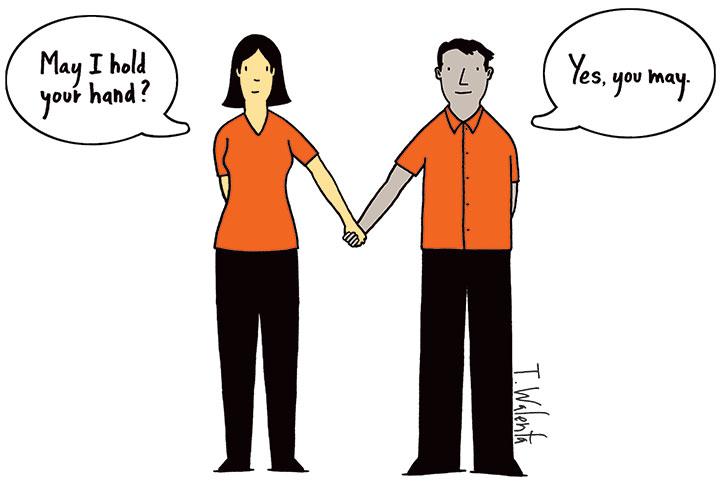
At the entrance to Charter Club on a Friday night in mid-October, a line formed as students waited patiently to read aloud from a piece of paper.
To gain admission, each guest had to recite a pledge acknowledging the need for consent in interactions with others: “Consent is asking for and receiving affirmation from someone of sound mind before and while engaging in their personal space or belongings, and can be revoked at any time.”
Following Charter’s lead, Cap and Gown Club implemented its own consent pledge, which was printed on a large poster board for members and guests to read as they enter the club.
The actions follow the findings of a University survey that reported in September 2015 that 27 percent of undergraduate women had experienced inappropriate sexual contact in the previous year. (Results of the latest student survey, conducted in the spring, were scheduled to be released in November.)Lorena Grundy ’17, the president of Charter, said the club’s officers had agreed that Charter should act to better protect students. “One of the officers said that his friend at Stanford had told him that this was a policy that they use at some of their parties,” Grundy said. “We had a two-minute conversation, and agreed that the idea was awesome and that we should do it.”
Grundy hopes that positive media attention, including mentions in Time magazine and The Huffington Post, will encourage other clubs to take similar action.
Charter is open to suggestions about how the pledge could be improved, she said, noting that an earlier version did not address the idea that someone who is incapacitated could not give consent. After the club consulted with SHARE, Princeton’s Sexual Harassment/Assault Advising, Resources and Education office, the wording was modified.
The club “intentionally didn’t specify that consent was just for sexual activities, because consent is involved with every interaction that involves another person,” Grundy said.
The action by the clubs is “a really positive step,” said Aleksandra Cvetković ’18, president of SpeakOut, a Princeton group working to promote action on questions of consent. “But I’m not sure if people will act differently after they read the pledge. You have to hope that they take it to mind.”

